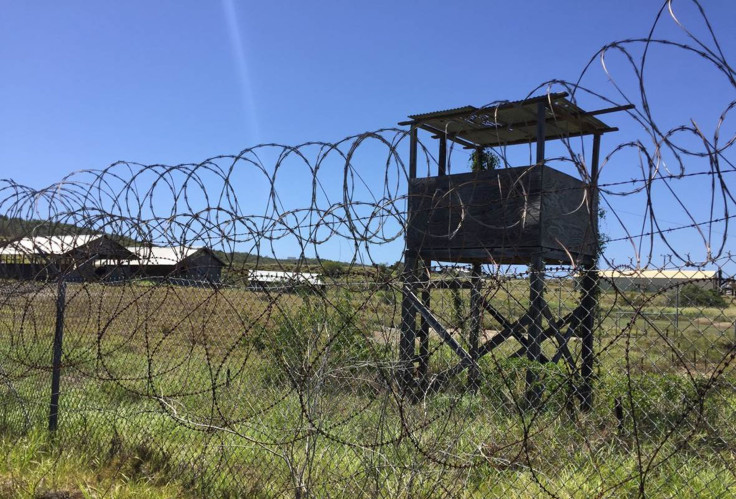Could Guantánamo Go Green? New Proposal Calls For Prison To Be Turned Into Marine Research Center

The status of the infamous detention center at the Guantánamo Bay Naval Base in southeastern Cuba has long been a thorny issue for both the United States and Cuba. Even as the two erstwhile foes move toward restoring diplomatic relations, the White House has insisted it will not negotiate the status of Guantánamo, rankling the Cuban government, which maintains that until the U.S. gives up the base, full normalization of ties is impossible.
Now, in a proposal put forward just days before Barack Obama becomes the first U.S. president to visit Cuba since 1928, two professors have proposed a “third path,” which they say can unite both countries.
In an op-ed published Thursday in the journal Science, Joe Roman, a conservation biologist at the University of Vermont, and James Kraska, professor of law at the U.S. Naval War College, make an argument for Guantánamo Bay to be turned into a marine research center and an international “peace park.”
“Cuba has about 5,000 km of coastline, including coral reefs, mangrove wetlands, seagrass beds, and tropical wet forests. Long stretches of coast remain undeveloped, with relatively high levels of fish biomass and marine biodiversity in marine parks that are unparalleled in the Caribbean,” the two researchers wrote in the op-ed. “We propose an approach to protect Cuba's coastal ecosystems and enhance conservation and ecological research throughout the Caribbean. ... This model, designed to attract both sides, could unite Cuba and the United States in joint management, rather than serve as a wedge between them, while helping meet the challenges of climate change, mass extinction, and declining coral reefs.”
Since the 1960s, the Cuban government has held that the American presence at Guantánamo is illegal, and has consistently refused to cash the rent checks from the U.S. Treasury Department. As a result of the longstanding discord between the two nations, the area around the naval base has seen less human activity than other parts of the Caribbean, making it an ecological hotspot populated with endangered species such as the green and hawksbill turtles, as well as other native wildlife like the Cuban iguana and the West Indian manatee.
“The future of Cuba is very uncertain,” Roman said in a statement. The influx of tourists from the U.S. and overseas business investment could turn Cuba into another Cancun, Mexico, with “high-rise hotels as far as the eye can see,” he added. Or, the island nation could pursue a more sustainable, eco-friendly path, by “building on strong traditions of environmental protection.”
“A park that commemorates the history of the area and uses existing infrastructure for a research center would give global recognition to the country's conservation efforts,” the researchers wrote in the journal. “It would provide financial support, up-to-date facilities for ecological and environmental work, and an opportunity to build capacity and train Cuban scientists and students, especially those from the surrounding eastern provinces.”
“For the next generation, the name Guantánamo could become associated with redemption and efforts to preserve and repair international relations and the planet,” they added.
© Copyright IBTimes 2025. All rights reserved.






















